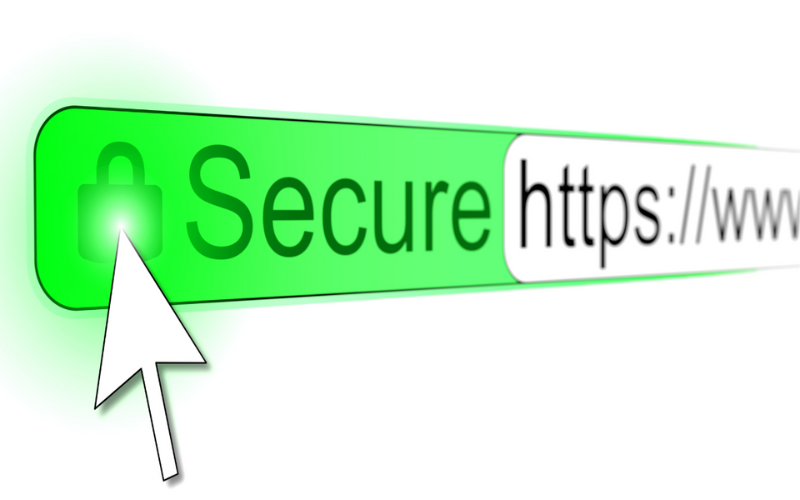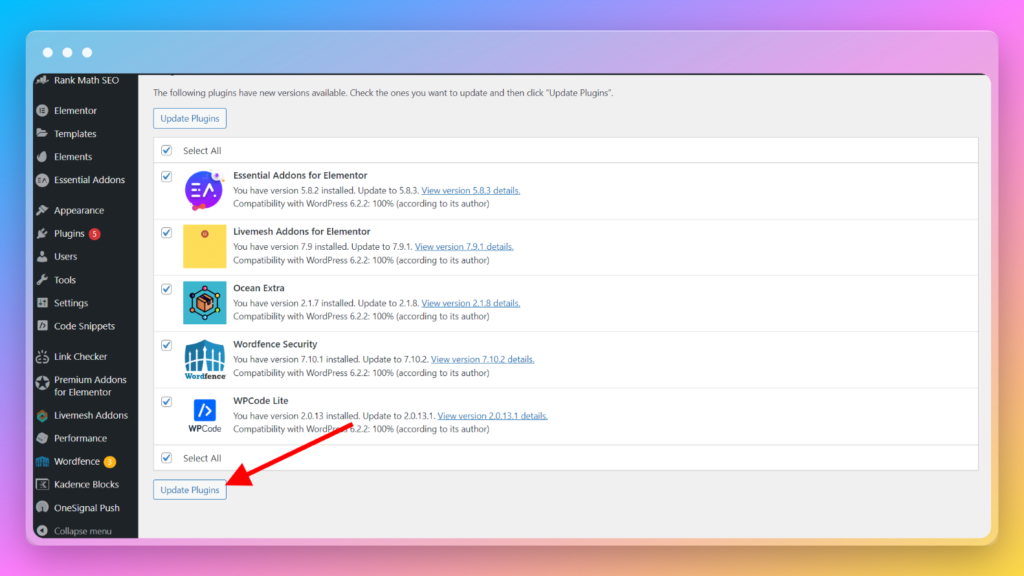Guide to Website Security: How to Secure Your Website in 2023?
Published By: Shubham Ahuja Published On: 21 Jul 23 6 Min Read
Did you know that 4.1 million websites have malware at any moment in time?
So, let us assume that you’ve created your website and taken all the necessary steps to ensure that it will be successful, but website security might be something you forgot to consider.
Lack of adequate safety precautions makes websites vulnerable to cyber assaults, which can be expensive to clean up, harm the image of your company, and prevent users from returning.
Let’s not worry about it because, thankfully, with Believ-In Tech’s top-notch website security solutions, we can stop all of those security threats in their tracks.
Trust us; we will safeguard your online presence like never before!
In this blog, we will go through website security basics, like what website security is and how you can prevent your site from falling victim to a cyber attack.
Table of contents
- What is Website Security?
-
Types of Website Security
- SSL Certificates
- Web Application Firewalls (WAF)
- Strong Password Policies
- Backup and Recovery
- Why is Website Security Important?
- Risks of Website Security
- Examples of Website Security
-
Tips to Improve Website Security in 2023
- Maintain Software Updates
- Establish a Procedure for Strong Passwords
- Opt for a Secure Host
- Maintain a Clean Website
- Wrapping It Up
What is Website Security?

Website security refers to the steps required to protect a website against cyberattacks. That can involve safeguarding a website from malware, viruses, phishing schemes, and typos.
In this sense, maintaining website security is a continuous activity as well as an integral element of website management.
Protecting your website’s users and visitors against assaults, data theft, as well as criminal actors depends on maintaining a secure website.
Types of Website Security
Website security is essential to safeguard your online identity from many risks looming on the internet.
Let’s look at some typical online web security types that can protect your website.
1. SSL Certificates

The tiny padlock icon in your browser’s URL bar identifies an SSL-secured website.
Secure Socket Layer (SSL) certificates encrypt data sent between a user’s browser and your website, guaranteeing the privacy of sensitive data like login passwords and credit cards numbers.
2. Web Application Firewalls (WAF)
WAFs are fictitious walls defending your website from prospective intruders.
By analyzing incoming traffic, they can spot and stop unwanted requests and dubious activity, defending against well-known cyberattacks like SQL injection and cross-site scripting.
3. Strong Password Policies
Users should be encouraged to create strong and unique passwords. Additionally, it is advisable to implement multi-factor authentication (MFA) whenever possible. This enhances the security of their accounts and protects against unauthorized access.
This additional security measure makes it more difficult for unauthorized persons to obtain access.
4. Backup and Recovery
By routinely backing up your website’s data, you can be confident that you will always have a current copy to restore in the event of a cyberattack or data loss.
Why is Website Security Important?

Okay, let me explain why website security is important, and why you should be concerned about it.
We’ll start with website protection, think of your website as your kid; you would do anything to protect it, wouldn’t you?
The same holds true for your digital baby, though!
Without adequate website security, it would be like leaving your front door wide open for different types of cybercriminals to enter. And believe me when I say that you don’t want such criminals tampering with your priceless web area.
Internet criminals and hackers lurk in the shadows like cunning ninjas in search of the tiniest gap to exploit. But don’t worry!
External website security services serve as your dependable guards, patrolling the virtual border and driving away crooks before they even get a chance to access your website.
So tell me, why are web security services so important to you?
It’s like having a digital defense force behind you at all times. It demonstrates to your clients how seriously you take their security, fostering loyalty and trust. Furthermore, you are unlikely to have to deal with expensive as well as humiliating data breaches thanks to a secure website.
It’s similar to purchasing online business insurance; you hope you won’t have to use it, but it’s so glad you have it if you do.
Therefore, don’t wait for the danger to strike before fortifying your website with excellent security measures right now. Be careful out there!
Risks of Website Security
Let’s discuss website security threats in simple terms now.
Now, what exactly is a website security risk?
Consider it similar to the risks that the vast internet holds for your website. You are familiar with how you lock every single door as well as window to your house to keep out evil men, right?
In your digital realm, website security is similar to that.
The web vulnerability is a significant participant in this risk game. These are like little chinks in the armor of your website that cunning hackers enjoy trying to expose. It’s not a good idea, similar to leaving a backdoor unprotected.
However, don’t worry!
The first step in defending yourself is to become aware of these threats. Strong passwords, software upgrades, and regular website security audits are a few strategies to close those security gaps and deter those online thieves.
Therefore, safeguard your website just like you would your house. Don’t allow website security threats to ruin your online celebration by locking those virtual doors as well as windows.
Rest assured!
Examples of Website Security

Let’s start with some simple examples of website security!
Okay, so what is a web security example?
Imagine having an internet shop where customers may shop ’til they drop. You would need an SSL certificate in place to protect their data.
During transmission, the system encrypts sensitive information, such as credit card numbers, to act as a digital padlock that makes it very difficult for hackers to eavesdrop.
Now, let us also talk about what is the best security for a website?
It all depends on what you require. A Web Application Firewall (WAF) is a superhuman for the majority of websites. It keeps watch, smelling out bad actors and discouraging them before they ever reach your website.
If you take security seriously, ALL websites can be secure, which is the quick answer to the question of what type of websites are safe.
Whether you operate a small blog or manage a large e-commerce site, it is crucial to prioritize the security of your users as well as safeguard their personal information.
Don’t compromise on web security. To keep those cybercriminals at away, lock up those online doors, buy an SSL, and perhaps enlist the help of a reliable WAF.
Be careful out there!
Tips to Improve Website Security in 2023
Now after knowing most of the things about website security, you must be thinking how can I improve my website security?
Do not worry about it at all, we will tell you the answer in very simple language.
Here are the tips that can help you improve your website security:
1. Maintain Software Updates

Updating whatever systems or programs you’ve installed is essential.
Hackers aggressively target popular online software; thus, safety vulnerabilities must be fixed by updating the programs. Every piece of software you use has to be updated and maintained.
2. Establish a Procedure for Strong Passwords
It’s crucial to use secure passwords. Hackers typically use complex software that uses forceful methods to break passwords.
The login information should be complex and incorporate capital, lowercase, digits, as well as special characters to prevent brute-force attacks.
Your passwords need to have at least 10 characters. This encryption password policy needs to be followed throughout your company.
3. Opt for a Secure Host
The web hosting company you select can significantly affect how secure your website is. It’s crucial to pick a host that understands online threats and is committed to safeguarding your site.
If your website experiences a security breach, the hosting provider should have a backup of all your data stored on a separate server. This ensures easy restoration of your site in such situations. Look for a host that provides continuous technical support whenever you need it.
Remember, the right web host plays a vital role in ensuring your website’s safety as well as reliability. So, make a thoughtful choice to protect your online presence effectively.
4. Maintain a Clean Website
Additional entry points for hackers can be found on your website through databases, programs, as well as plugins. Your website should be taken down if outdated software, databases, or records are present.
Wrapping It Up
You’ve successfully completed our comprehensive guide to website security for 2023!
Now that you know the most recent security precautions, you can effectively defend your website from the always-changing online dangers.
Remember that staying one step ahead of cybercriminals is essential in today’s fast-paced digital environment. At Believ-In Technologies, we can help with that. So, you can reinforce your online presence to an unprecedented degree with their state-of-the-art website security services.
Avoid letting spyware, as well as hackers spoil the effort you put into creating your website. Invest in the greatest defense you can afford; Believ-In Technologies knows-how will keep those cyber evils at bay, guaranteeing that users can engage with your site safely while browsing, shopping, and interacting.
